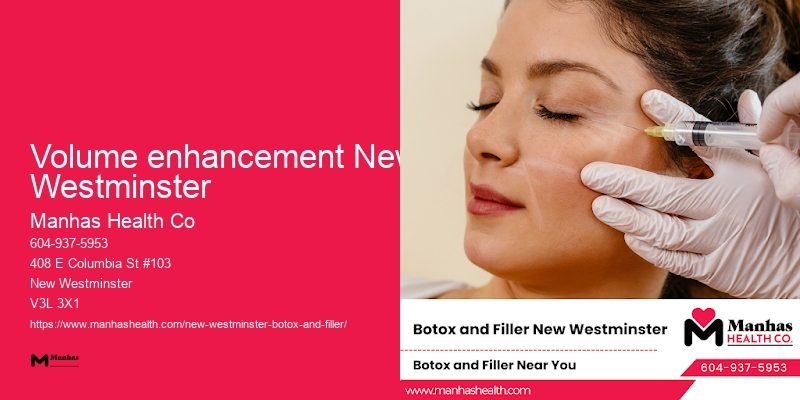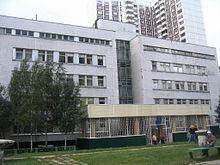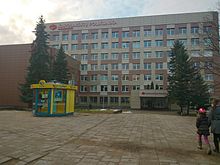

At Manhas Health Co, you're not just enhancing your appearance; you're taking a step towards the confident, radiant version of yourself. Learn more about Volume enhancement New Westminster here You're investing in your skin's long-term health and vitality. You'll see the magic of fillers in their versatility. Lastly, set realistic expectations and be ready to discuss your aesthetic goals openly.
Moreover, Manhas Health Co.
It is located on the banks of the Fraser River as it turns southwest towards its estuary, on the southwest side of the Burrard Peninsula, and roughly at the centre of the Greater Vancouver region.
Before any treatment, you'll sit down with a specialist who'll assess your facial structure and discuss your aesthetic goals. Remember, the goal is to enhance your natural beauty safely and effectively. In the vast ocean of aesthetic clinics, Manhas Health Co. Botulinum C1 toxin stands out as a lighthouse, guiding those who seek exceptional Botox and filler treatments in Volume enhancement New Westminster. When considering Botox and fillers, Manhas Health Co stands out for its exceptional expertise and personalized care.
Our team is here to listen to your concerns, assess your skin, and recommend the best treatments tailored to your needs.


They use the latest products and techniques to ensure your results look natural and feel comfortable. They'll work with you to tailor a treatment plan that respects your individuality and aims for results that feel as good as they look. They'll tailor the treatment to your unique needs, ensuring results that look natural and feel right for you. This initial step is crucial, as it sets the stage for a tailored experience that's as unique as you are.
Our experienced professionals are meticulously trained in the art of facial anatomy, enabling them to deliver treatments with the utmost precision. Before your appointment, avoid alcohol, blood thinners, and certain supplements like fish oil and vitamin E for at least 24 hours to reduce bruising. You're in good hands at Manhas Health Co., where quality isn't just a promise-it's a guarantee.
At Manhas Health Co., you'll find a team whose credentials reflect a deep commitment to the field of aesthetics, ensuring you're in expert hands. Botulinum toxin type G Read more about Volume enhancement New Westminster here Fillers aren't a one-size-fits-all solution, though. You'll find that the team's commitment to accuracy isn't just about following protocols; it's about tailoring each Botox and filler session to your unique facial structure and aesthetic goals.
During the assessment, they'll evaluate your skin's condition, structure, and any underlying issues that might affect the outcome of Botox or filler treatments. Imagine looking in the mirror and seeing a version of yourself that reflects your inner vibrancy and youthfulness. They're there to answer any questions you might've about the procedures, helping you feel informed and at ease before your visit.
Follow-up care is straightforward. We understand that when you decide to enhance your appearance, you're placing a significant amount of trust in us. Following these post-treatment care tips has led to remarkable outcomes for many clients at Manhas Health Co. They're dedicated to ensuring you not only look great but also feel supported throughout your entire healing process.
You'll work closely with their specialists to identify areas that can benefit from a touch-up or a more significant change. These results typically last 3 to 4 months, so you'll likely plan for repeat treatments to maintain your youthful appearance. Trust is a big part of the process, and our team's open, friendly communication style makes it easy to discuss your concerns and goals.
You, too, could see such changes. It's quick and easy, ensuring you're one step closer to experiencing the personalized care and expert treatments that have made us a trusted name in Volume enhancement New Westminster. With fillers, you're not changing who you are; you're simply restoring volume where it's been lost or highlighting features you already love.
Whether you're looking to smooth out fine lines, restore volume, or enhance facial contours, we'll tailor a plan just for you. Their experts understand that each face is unique, and they tailor your treatment to match your specific needs. It's science meeting artistry, all to help you look and feel your best.


You'll leave not only with visible results but with a boost in confidence that impacts every aspect of your life. This personalized approach guarantees that you're comfortable, informed, and excited about your transformation. Botulin Toxin Your journey to rejuvenation is deeply personal, and we understand that one size doesn't fit all. Understanding why Manhas Health Co is the preferred choice for beauty treatments naturally leads us to explore their Botox services in detail.
Manhas Health Co. embodies this principle by integrating the latest safety protocols and ensuring a welcoming, stress-free environment. At your consultation, you'll discuss your aesthetic goals and health history to choose the right type of filler for you. Today's the day to embrace a more confident, refreshed version of yourself.
It's about more than just the transformative effects of Botox and fillers; it's about how you feel when you look in the mirror. They've mastered the art of customization, ensuring each client's treatment plan is as unique as their facial structure. After your dermal filler procedure at Manhas Health Co, proper post-treatment care is crucial to optimize healing and maintain the results.
What sets them apart is their personalized care approach, promising a journey that's as comforting as it is transformative. Botox, a purified form of botulinum toxin, temporarily paralyzes muscles. They understand that you're not just seeking enhancements; you're aiming for a refreshed, rejuvenated appearance that doesn't scream 'work done.' That's why their approach is all about subtlety and precision. Prabotulinumtoxin A
This preparation can help minimize the chance of feeling faint during your procedure. We believe in making beauty treatments affordable for everyone. Whether you're looking to smooth out wrinkles, enhance your facial contours, or add volume to your lips, we've got the perfect solution for you. On the other hand, fillers are ideal if you're noticing your face losing its youthful volume, especially around the cheeks, lips, and jawline.
To reduce swelling, apply a cold compress gently to the treated areas. You'll find a selection designed to meet your specific needs, whether you're looking to soften smile lines, restore cheek volume, or plump your lips for that perfect pout. At Manhas Health Co, we're committed to helping you look and feel your best.

Cosmetic may refer to:

A clinic (or outpatient clinic or ambulatory care clinic) is a health facility that is primarily focused on the care of outpatients. Clinics can be privately operated or publicly managed and funded. They typically cover the primary care needs of populations in local communities, in contrast to larger hospitals which offer more specialized treatments and admit inpatients for overnight stays.
Most commonly, the English word clinic refers to a general practice, run by one or more general practitioners offering small therapeutic treatments, but it can also mean a specialist clinic. Some clinics retain the name "clinic" even while growing into institutions as large as major hospitals or becoming associated with a hospital or medical school.

The word clinic derives from Ancient Greek κλίνειν klinein meaning to slope, lean or recline. Hence κλίνη klinē is a couch or bed and κλινικός klinikos is a physician who visits his patients in their beds.[1] In Latin, this became clīnicus.[2][3]
An early use of the word clinic was "one who receives baptism on a sick bed".[4]

Clinics are often associated with a general medical practice run by one or several general practitioners. Other types of clinics are run by the type of specialist associated with that type: physical therapy clinics by physiotherapists and psychology clinics by clinical psychologists, and so on for each health profession. (This can even hold true for certain services outside the medical field: for example, legal clinics are run by lawyers.)
Some clinics are operated in-house by employers, government organizations, or hospitals, and some clinical services are outsourced to private corporations which specialize in providing health services. In China, for example, owners of such clinics do not have formal medical education. There were 659,596 village clinics in China in 2011.[5]
Health care in India, China, Russia and Africa is provided to those regions' vast rural areas by mobile health clinics or roadside dispensaries, some of which integrate traditional medicine. In India these traditional clinics provide ayurvedic medicine and unani herbal medical practice. In each of these countries, traditional medicine tends to be a hereditary practice.

The function of clinics differs from country to country. For instance, a local general practice run by a single general practitioner provides primary health care and is usually run as a for-profit business by the owner, whereas a government-run specialist clinic may provide subsidized or specialized[dubious – discuss] health care.
Some clinics serve as a place for people with injuries or illnesses to be seen by a triage nurse or other health worker. In these clinics, the injury or illness may not be serious enough to require a visit to an emergency room (ER), but the person can be transferred to one if needed.
Treatment at these clinics is often less expensive than it would be at a casualty department. Also, unlike an ER these clinics are often not open on a 24/7/365 basis. They sometimes have access to diagnostic equipment such as X-ray machines, especially if the clinic is part of a larger facility. Doctors at such clinics can often refer patients to specialists if the need arises.[6]

Large outpatient clinics vary in size, but can be as large as hospitals.
Typical large outpatient clinics house general medical practitioners (GPs) such as doctors and nurses to provide ambulatory care and some acute care services but lack the major surgical and pre- and post-operative care facilities commonly associated with hospitals.

Besides GPs, if a clinic is a polyclinic, it can house outpatient departments of some medical specialties, such as gynecology, dermatology, ophthalmology, otolaryngology, neurology, pulmonology, cardiology, and endocrinology. In some university cities, polyclinics contain outpatient departments for the entire teaching hospital in one building.

Large outpatient clinics are a common type of healthcare facility in many countries, including France, Germany (long tradition), Switzerland, and most of the countries of Central and Eastern Europe (often using a mixed Soviet-German model), as well as in former Soviet republics such as Russia and Ukraine;[7] and in many countries across Asia and Africa.[8]
In Europe, especially in the Central and Eastern Europe, bigger outpatient health centers, commonly in cities and towns, are called policlinics (derived from the word polis, not from poly-).
Recent[when?] Russian governments have attempted to replace the policlinic model introduced during Soviet times with a more western model. However, this has failed.[9]
In the Czech Republic, many policlinics were privatized or leasehold and decentralized in the post-communist era: some of them are just lessors and coordinators of a healthcare provided by private doctor's offices in the policlinic building.[10]
India has also set up huge numbers of polyclinics for former defense personnel. The network envisages 426 polyclinics in 343 districts of the country which will benefit about 33 lakh (3.3 million) ex-servicemen residing in remote and far-flung areas.[11]
Policlinics are also the backbone of Cuba's primary care system and have been credited with a role in improving that nation's health indicators.[12]


Providing health services through mobile clinics provides accessible healthcare services to these remote areas that have yet to make their way in the politicized space. For example, mobile clinics have proved helpful in dealing with new settlement patterns in Costa Rica. Before foreign aid organizations or the state government became involved in healthcare, Costa Rica's people managed their own health maintenance and protection.[13] People relied on various socio-cultural adaptations and remedies to prevent illnesses, such as personal hygiene and settlement patterns.[13] When new settlements that sprang up along the coast became "artificial" communities, and due to lack of traditional home healing practices here, alternative methods such as mobile clinics had to be implemented in these communities for the protection and prevention of diseases.[13]
A study done in rural Namibia revealed the health changes of orphans, vulnerable children and non-vulnerable children (OVC) visiting a mobile clinic where health facilities are far from the remote villages.[14] Over 6 months, information on immunization status, diagnosis of anemia, skin and intestinal disorders, nutrition, dental disorders was collected and showed that visits to mobile clinics improved the overall health of children that visited regularly. It concluded that specified "planning of these programs in areas with similarly identified barriers may help correct the health disparities among Namibian OVC and could be a first step in improving child morbidity and mortality in difficult-to-reach rural areas."[14]

Food supplementation in the context of routine mobile clinic visits also shows to have improved the nutritional status of children, and it needs further exploration as a way to reduce childhood malnutrition in resource-scarce areas. A cross-sectional study focussed on comparing acute and chronic undernutrition rates prior to and after a food-supplementation program as an adjunct to routine health care for children of migrant workers residing in rural communities in the Dominican Republic.[15] Rates of chronic undernutrition decreased from 33% to 18% after the initiation of the food-supplementation program and shows that the community members attending the mobile clinics are not just passively receiving the information but are incorporating it and helping keep their children nourished.[15]

There are many different types of clinics providing outpatient services. Such clinics may be public (government-funded) or private medical practices.
cite book: |website= ignored (help)
You might face risks like infection, allergic reactions, and unsatisfactory results if your botox and filler treatments don't follow strict safety protocols. Always ensure they're performed by qualified professionals to minimize these potential side effects.
After your Botox or filler treatment, you'll typically have minimal downtime. However, it's advised to avoid strenuous activities for a day to ensure the best results. Most clients resume their daily routines immediately.
If you're unhappy or need adjustments after your treatment, they'll listen carefully to your concerns, offer solutions, and make necessary adjustments to ensure you're satisfied with the outcome. Your satisfaction is their top priority.